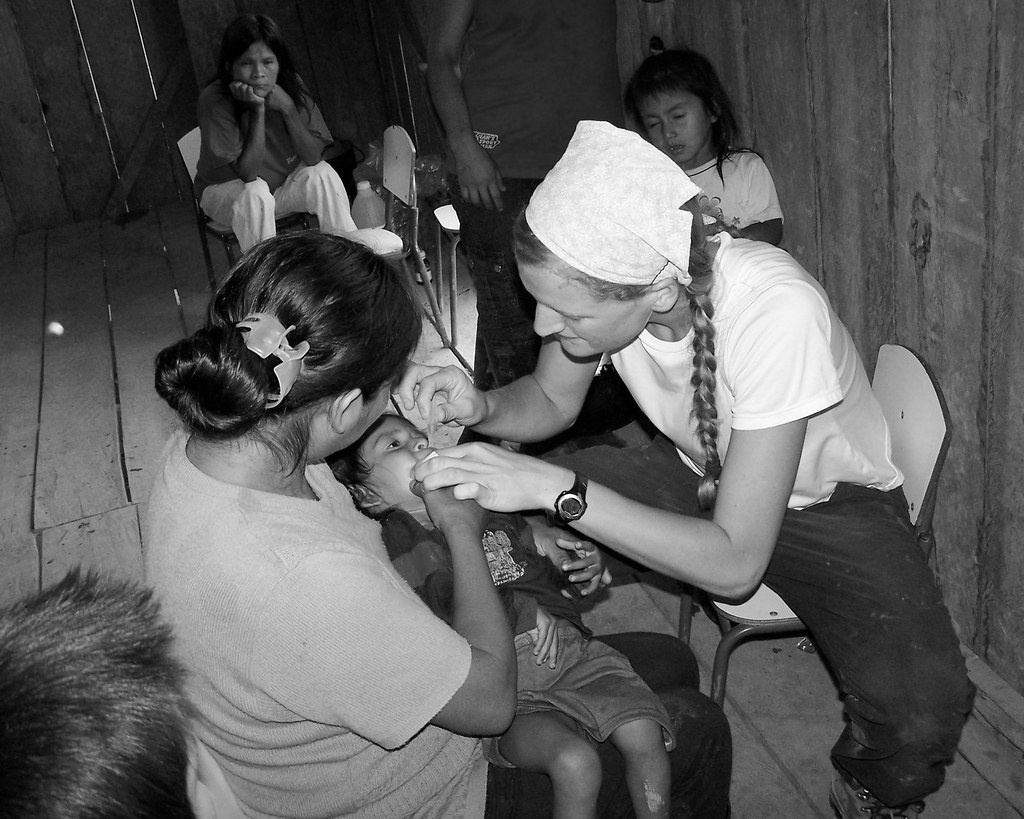Some commonalities of pro- and anti-vaccination rhetoric
By Kristopher A. Nelson
in
May 2010
600 words / 3 min.
Tweet
Share
Within the context of the contemporary vaccination debate, neither side has a monopoly on a particular kind of argument.
Please note that this post is from 2010. Evaluate with care and in light of later events.
 Within the context of the contemporary vaccination debate, neither side has a monopoly on a particular kind of argument.
Within the context of the contemporary vaccination debate, neither side has a monopoly on a particular kind of argument.
As just one example, many vaccination opponents focus on potential conflicts of interest by researchers, especially when researchers may be influenced by pharmaceutical companies and the potential profits such companies may enjoy through the use–especially the mandated use–of vaccines they manufacture.
These “[a]ccusations of having engaged in mercenary practices” are intended to reduce the authority of scientific experts. Many anti-vaccine Web sites, according to a 2002 study published in Archives of Disease in Childhood, take the accusation further, casting doctors and scientists as either “willing conspirators cashing in on the vaccine `fraud’ or pawns of a shadowy vaccine combine.”
Conflict-of-interest criticisms are also used by proponents of vaccination when they evaluate and review claims. For example, critics of vaccine opponent and scientist Andrew Wakefield, author of a now-retracted study published in The Lancet, accuse him of being “paid big bucks by trial lawyers” and of not revealing this “conflict of interest.”
Most proponents of vaccination see themselves, in the words of Dr. Paul Offit, as “science advocate[s],” not “vaccine advocate[s].” A major critique they make of vaccination opponents is that they ignore or distort science, equate correlation with causation, or fasten on preliminary or poorly-conducted studies as the final word on a subject.
Current opponents of vaccination also seek to align themselves on the side of science. Even as they criticize the mainstream scientific perspective on vaccination, nonetheless, “in what appears as a paradox, the appeal to scientific expertise” remains:
In the context of a controversy, any group which attempts to present its case and to participate in the critical assessment of alternative viewpoints without appealing to any scientific expertise puts itself in a very vulnerable position.
Despite this appeal to science, expertise in the vaccination debates remains a contested issue. Sharon Kaufman, a professor of medical anthropology at the University of California, San Francisco, says that with the proliferation of “experts” on the Internet, “many parents see even the most respected vaccine experts’ perspective on the issue as just one more opinion.”
Vaccination opponents often combine references to science with a powerful emotional hook. Citing the 2002 study mentioned earlier, Liza Gross writes, “The bulk of antivaccination Web sites present themselves as legitimate sources of scientific information, using pseudoscientific claims and emotional appeals.”
The National Vaccintion Information Center site, for example, combines a “Memorial to Vaccine Victims” with a “Doctor’s Corner” containing materials written by physicians. Gross adds that, on many anti-vaccination Web sites, intuitive views about vaccines were elevated above “cold, analytical science,” and accounts of children “maimed or killed by vaccines” were common–a finding that may help explain why those who advocate immunization receive death threats.
This combination of science plus emotion–validating the intuition of parents while providing alternative expertise to back up their beliefs–is a compelling one.
Scientific knowledge–or, at least the appearance of such knowledge–remains key on anti-vaccination Web sites. This is visible in “informed choice” rhetoric, for example, and is a key theme of the NVIC site. It is also, perhaps obviously, a key component of pro-vaccination rhetoric as well.
For more specific comparisons of pro- and anti-vaccination Web sites, see Markers of Trust: How Pro- and Anti-Vaccination Web Sites Make Their Case on SSRN.
Related articles by Zemanta
- J.B. Handley and the anti-vaccine movement: Gloating over the decline in confidence among parents about vaccines (sciencebasedmedicine.org)
- PBS Frontline: The Vaccine War (leftbrainrightbrain.co.uk)
- Contaminated Childhood Vaccines (lewrockwell.com)